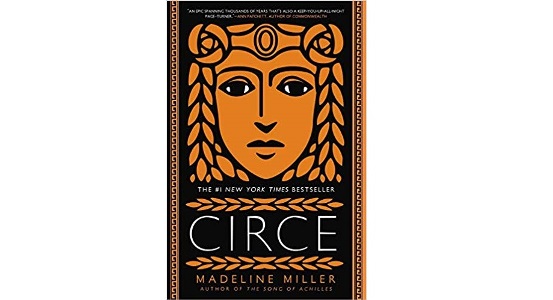Books
Mythical coming of age story, reimagined and modernised
This critically-acclaimed novel is an adaption of ancient Greek myth, and its gritty female protagonist is still one for the ages.
Richa Bhattarai
Circe is a nobody, one of the much lesser, and thus ineffectual, goddesses. She is born of the powerful sun god Helios and his pretty Oceanid wife Perse, but they take little notice of her, for she is an insignificant creation.
In her retelling of the Greek myth of Circe, Madeline Miller paints a withdrawn, lonely picture of Circe’s childhood. She is constantly bullied and neglected. She flits about full of doubt, a pale shadow in her father’s courts. Even her mother is dismissive of her, cruel in her taunts: “Circe is dull as a rock. Circe has less wit than bare ground. Circe’s hair is matted like a dog’s.”
Seeking solace from these barbs, Circe, like many goddesses and nymphs before and after her, falls in love with a mortal. To save her beloved Glaucus, a lowly fisherman, Circe seeks a rare, powerful plant that might enchant him to her forever. Instead, she just finds some soft, common, foolish flowers.
While she despairs that she will soon lose Glaucus, a transformation takes place in her—this point is when Circe’s wisdom and talent come to the fore. This is when we begin to see the enchantress of nature begin to bloom. “A knowledge woke in the depths of my blood,” says Circe. From this moment on, faltering and halting, failing and tripping, Circe begins her slow but certain journey towards being the pharmakis—or witch—that she is.
Glaucus, however, does not bring any reprieve to Circe. Instead, trying to keep him to herself, she jealously turns the nymph Scylla, who moves ‘silver as a flowing stream’ into a grotesque monster. This witchery costs Circe dearly. In the battle between the Titans and Olympians, she is made a pawn and is banished to a deserted island.
Here, decade after decade and century after century, Circe moulds and evolves and emerges as the flawed yet learned and magnificent character she is—a goddess of magic and nature, sorceress par excellence, the ruler of island Aiaia. Kirke, who is introduced in Homer’s Odyssey as a minor character from Aeaea, a sorceress who turns men to swine, takes centre stage in this vivid, modern novel by Miller—who was also shortlisted for the Women’s Prize for Fiction this year.
The most fascinating, charismatic aspect of Miller’s novel is the gradual development of Circe’s character arc. Beginning as a story of a shy, unsure girl whose lineage sits too heavy on her shoulders, to a powerful enchantress that establishes herself as the queen of her empire, Circe is a very different kind of coming-of-age tale. Miller, with a fine-toothed precision, unknots one delicate layer after another, so readers follow along in every process of the frail adolescent turning into a fearsome woman.
Women over the world have claimed the portrayal of Circe is the projection of the veiled grit and potency of the female being—which is not far from the truth. Even when she considers herself helpless, Circe is strong, confident, and has agency. As she is exiled to a wild island, away from every luxury and comfort she has known in her life, she says, “I had a little pride. If they did not weep, I would not either. I pressed my palms to my eyes until they cleared. I made myself look around.” Just as women have always done when uprooted from their terrains and planted in the lands of strangers, Circe sets about making everything her home—and succeeds.
“No wonder I have been so slow,” Circe understands, “All this while I have been a weaver without wool, a ship without a sea. Yet now look where I sail.”
Circe sails ferociously in the new waters. After ‘ten thousand years ducking like a mouse’ and remaining ‘sightless as a mole’, she morphs into a proud warrior with a lion as a companion. This growth is incredible—and yet utterly believable, so well-developed is her character. Unlike other feminine retellings, Miller makes little attempt to sanitise her heroine, to absolve her of guilt and blame. If she makes mistakes, she suffers. She is grimy and uncouth, hateful and vulnerable all at once. But always, Circe has resilience, and a new-found trust in her powers, that helps her overcome the worst.
Miller is not very different from Circe. For just like the Goddess who charms nature into doing her bidding, Miller, too, knows how to coax magic from her ingredients of symbols and rich descriptions. There are ‘green scents’ we smell; ‘sea winds’ that touch you, ‘murmur of feathers of bed’ that we hear, ‘gleaming rivers’ and ‘thriving flocks’ that we see. The island of Aiaia comes alive before us, in its susurrations and incantations. Miller’s special bond with words is revealed most tellingly in the uncomfortable and startling scenes she weaves—a mother giving birth to a frightening child; a monster seeking revenge; Circe being sexually assaulted. Her words glow with beauty and precision, knowing they have been specially selected and polished.

Lovers of Greek myths will already be intimately familiar with the stories Miller revisits—Icarus and Daedalus, the Minotaur and Labyrinth, Dionysus and Hermes. In fact, one glaring drawback of Miller’s work is how these characters have been analysed a thousand different times. The danger of fatigue and repetition lurks around the corner. As a teacher of Latin and Greek, the novelist is in perfect command of her subject most times. But sometimes, perhaps as she creates her own stories where there are none, she ends up contradicting herself. At the very beginning, we hear Gods eat not for sustenance but for pleasure. And yet, Circe mentions soon after that she is ‘hungry.’ Also, while Circe’s life events are enough to keep readers mostly engrossed, there are lengthy moments of nothingness and boredom that will make the most devoted readers impatient. A situation stretched out too thin, a love affair described in overt detail, a thought veining and expanding across a couple of pages—there are certainly places the editor could have snipped off the extra material.
But for the most part, Miller plays with characters and situations, offers novel explanations and causations, plants shocking twists and inserts thought-provoking logic. While Greek myths do not lack drama, even in their original form, the author intensifies and vivifies the action with superb skill. Perspectives from previous margins are always welcome in literature, and through this novel, Circe owns her story and tells it the way she wants to. She refuses to let herself remain ‘the proud witch undone before the hero’s sword, kneeling and begging for mercy.’
Instead, she lives and leaves with her head held high—for this fierce character alone, Circe is worth exploration.
Circe
Author: Madeline Miller
Pages: 336
Publisher: Bloomsbury
Price: Rs 356
What do you think?
Dear reader, we’d like to hear from you. We regularly publish letters to the editor on contemporary issues or direct responses to something the Post has recently published. Please send your letters to [email protected] with "Letter to the Editor" in the subject line. Please include your name, location, and a contact address so one of our editors can reach out to you.




 9.7°C Kathmandu
9.7°C Kathmandu










